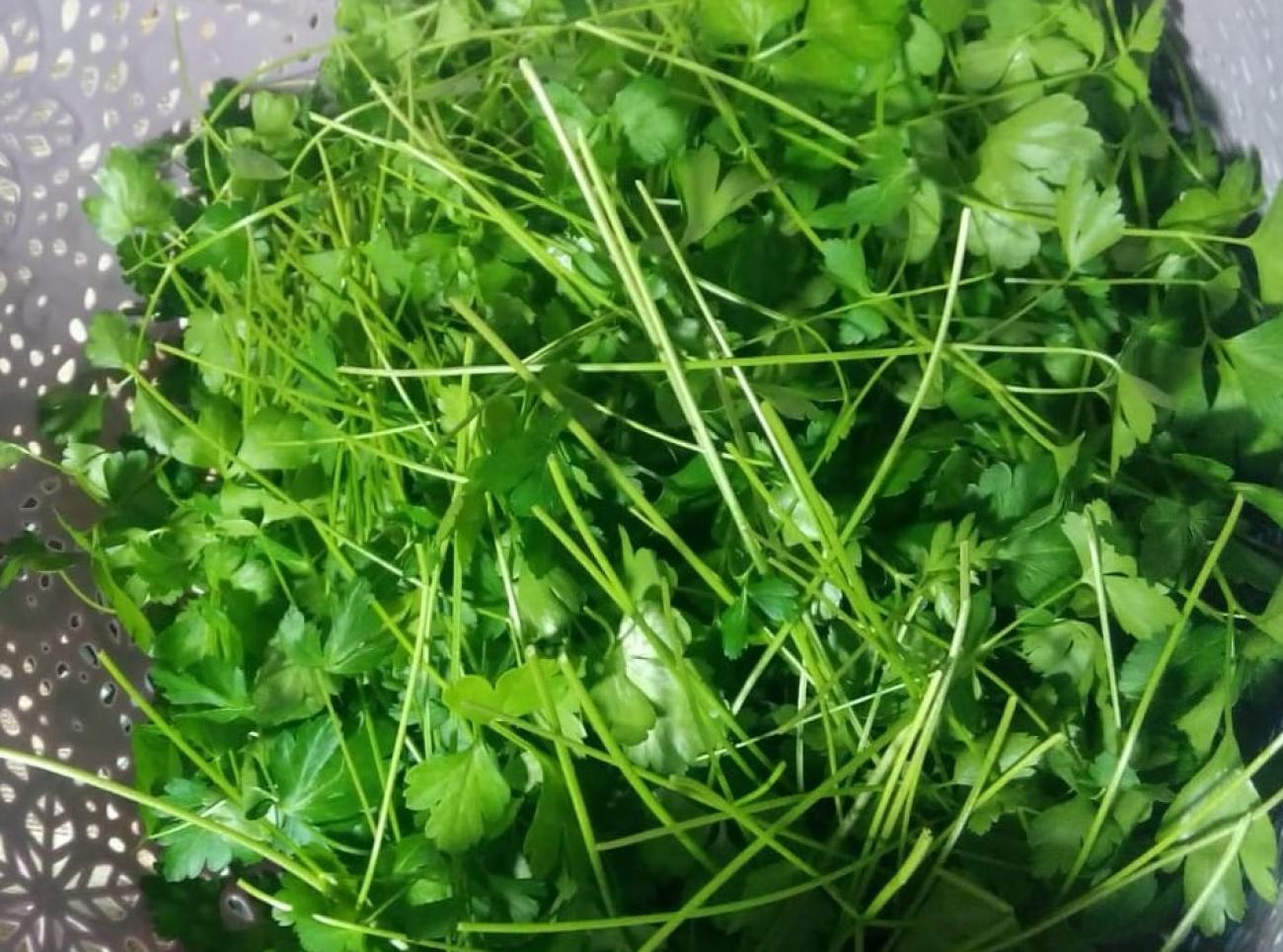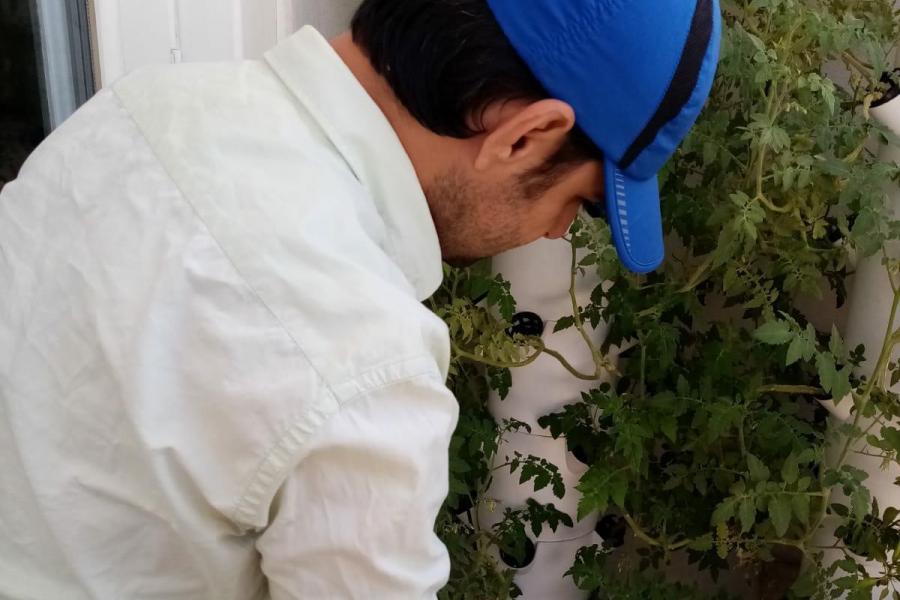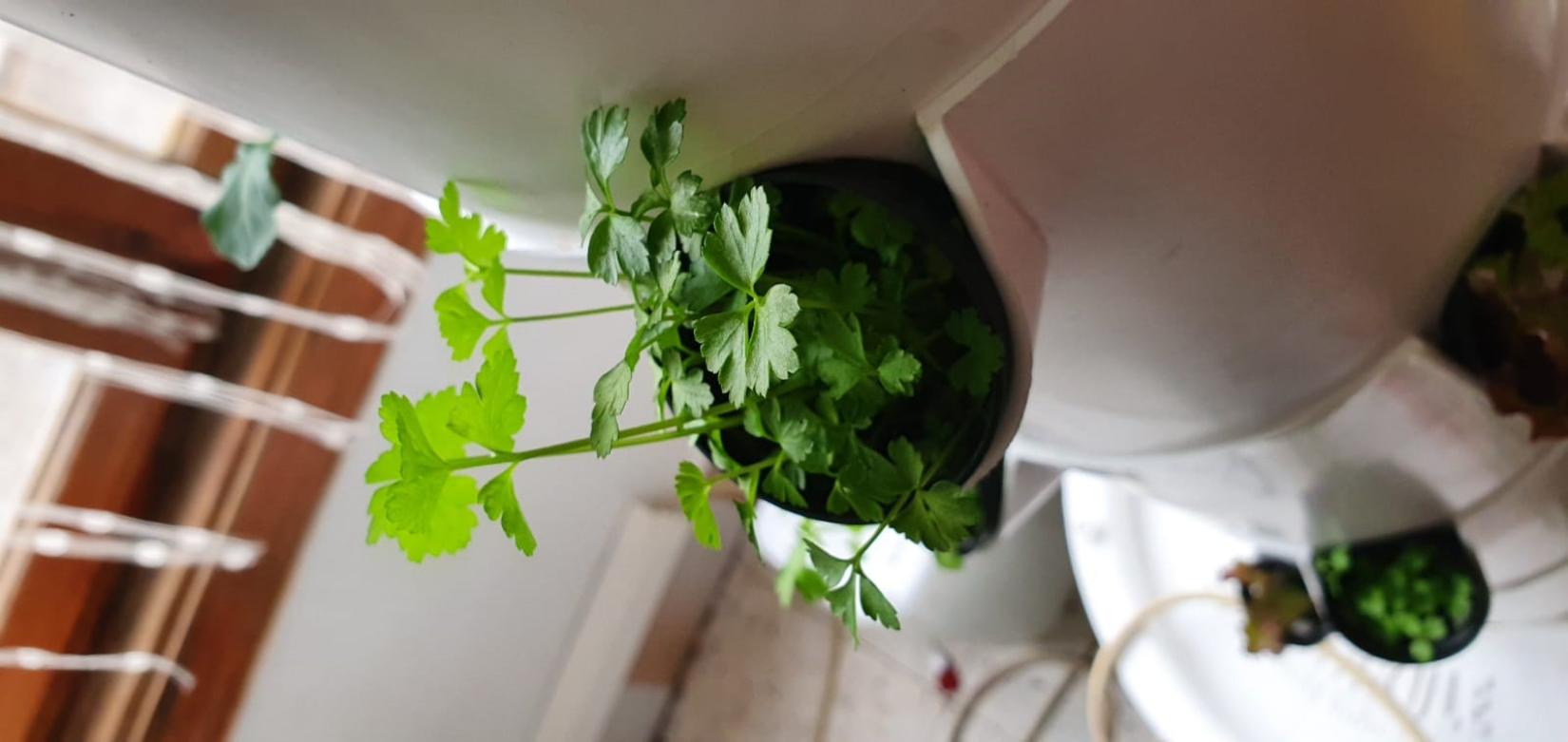Quality food grown in just one square meter at Syrian and Turkish households

Provided by UN Women to households micro-gardening enables Turkish and Syrian women to grow quality and healthy vegetables in their living rooms and balconies.
Micro-gardening enables Turkish and Syrian women, together with the other household members, to grow quality and healthy vegetables in their living rooms, balconies or on their rooftops. Provided by UN Women to around 100 households, the soilless agriculture kits contribute to their economy and wellbeing in southeast Turkey and increase their access to livelihood and dietary diversity, amid the COVID-19 outbreak.
“It is a joy for us to make a salad out of the vegetables freshly grown inside our home. I am not buying iceberg or parsley from the market anymore. This allows me to spend on other needs,” says Fatena Khalil*.
Khalil is from Syria and lives in Gaziantep, a province of Turkey near the border with Syria. She and her family are among the beneficiaries of the micro-gardening project. She says: “Whenever I have guests, I proudly say, ‘look, this salad is made from my veggies’. The harvest was around Ramadan and it greatly contributed to our household economy. Moreover, it healed me. Growing something at home, feeding it with water, and observing the seeds turning into huge edible leaves made me happy. When you see the results of your efforts, you are encouraged. Now, I am growing green peas and chili,” she says.
In December 2019, UN Women joined forces with the Association for Solidarity with Asylum Seekers and Migrants, a partner of the regional programme, funded by the European Union, the EU Regional Trust Fund in response to the Syrian Crisis (the EU Madad Fund) “Strengthening the Resilience of Syrian Women and Girls and Host Communities in Iraq, Jordan, and Turkey”, and started delivering soilless agriculture kits to 100 Turkish and Syrian households living in Gaziantep. The project aims to contribute to women’s and men’s access to livelihoods and improve households’ nutrition and dietary diversity.
Prior to starting soilless agriculture, UN Women provided trainings on micro-gardening and how to use the kits, along with information around women’s rights and gender equality.
Coming in the shape of an indoor hydroponic system, the soilless agriculture kits are suitable for sunless indoor spaces. Even though many did not have a balcony or terrace, they could still benefit from the kit and grow the vegetables in their living rooms.

Since getting his kit four months ago, Emre Erhani*, a Turkish beneficiary, has also started eating home-grown veggies. “I always wanted to growing vegetables at home. Thanks to the project we can grow and eat healthy veggies. The taste is much better than the ones we buy from the market. The first harvest was at the end of the first month, we used them for our breakfasts and salads. At the end of the second month, we harvested a lot more vegetables. We even made the traditional Lahmacun. The taste was incredible. Micro-gardening covered our vegetable needs for at least two months,” he says.
“Micro-gardening is an effective way to access affordable and quality food for Syrian and host communities. Micro-gardening specifically supports women, as they are more likely to spend income on food; and the distribution of food may favour men over women. As we aim to further strengthen the resilience of vulnerable Turkish and Syrian women, we prioritized single mothers and women heads of households in this project.” says Özgür Koç, Programme Associate at UN Women. “It allows for the intensive cultivation of a wide range of vegetables, roots, and tubers, as well as herbs in small spaces, such as balconies, patios, rooftops and even living rooms or kitchens,” he adds. One square meter of a micro-garden can produce around 200 tomatoes, 200 onions, 40 cabbages, 216 lettuce.
“Soilless agriculture allows vulnerable Turkish and Syrian households to meet their needs for vitamins, and minerals by providing direct access to fresh, nutritious vegetables every day. During the lockdown, they could grow and eat vegetables without going out,” says Koç.

The micro gardening project will continue throughout the autumn and winter seasons. The winter seedlings will be distributed to the beneficiaries during the planting season. “We will continue to provide support to the beneficiaries of this project about growing seeds and using the kits through our WhatsApp groups,” says Koç.
* The name has been changed to protect the identity of the individual.





